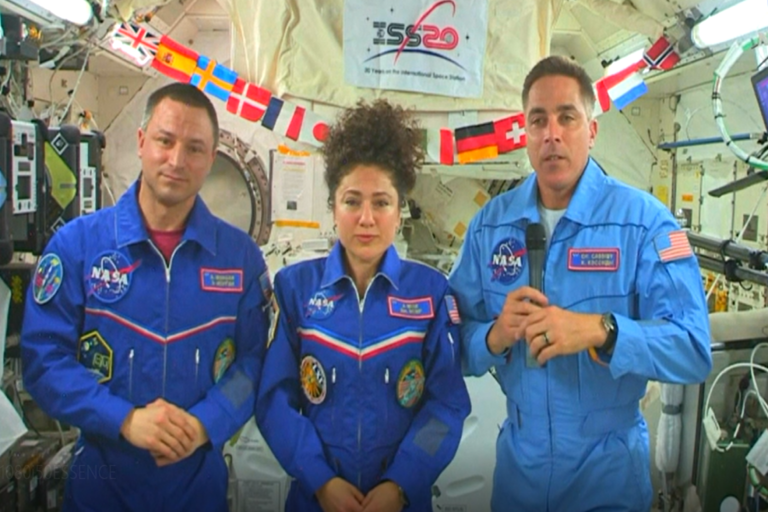Three NASA astronauts aboard the International Space Station spoke to reporters , reflecting on the global virus outbreak and the 50th anniversary of Apollo 13.
NASA's Chris Cassidy and Russians Anatoly Ivanishin and Ivan Vagner arrived at the orbiting lab in their Soyuz capsule six hours after blasting off from Kazakhstan.
"We knew as a crew we were gonna be in quarantine about nine months ago or a year ago, those exact weeks, but we didn't know the whole rest of the world was gonna join us," Cassidy said.
They joined two Americans, Jessica Meir and Andrew Morgan, and another Russian cosmonaut who will return to Earth in about a week.
"It certainly will be very difficult for me to not be able to give some hugs to my family and friends," Meir said of her return.
Morgan noted their return date mirrors the Apollo 13 astronauts' half a century prior, after their spacecraft's oxygen tank ruptured two days into what would've been a trip to the moon.
Despite changes to Mission Control operations brought on by the coronavirus pandemic, Morgan said he's confident in the team's ingenuity and professionalism."They're gonna return us to Earth safely, just like their predecessors did 50 years ago," he added.
As Cassidy, Ivanishin and Vagner floated into the space station one by one , the new astronauts embraced the three already there.The newest crew members will remain on board until October, keeping the outpost running until SpaceX launches a pair of NASA astronauts from Florida's Kennedy Space Center, as early as next month.
It will be the first orbital launch of astronauts from the U.S. since NASA's space shuttle program ended in 2011.
For most people, the new coronavirus causes mild or moderate symptoms, such as fever and cough that clear up in two to three weeks.For some, especially older adults and people with existing health problems, it can cause more severe illness, including pneumonia and death.The vast majority of people recover.
Also Read: Apple Music launches 'Stream Local' initiative in India
Stay home, stay safe
(Inputs from APTN)



